Location of charging input socket
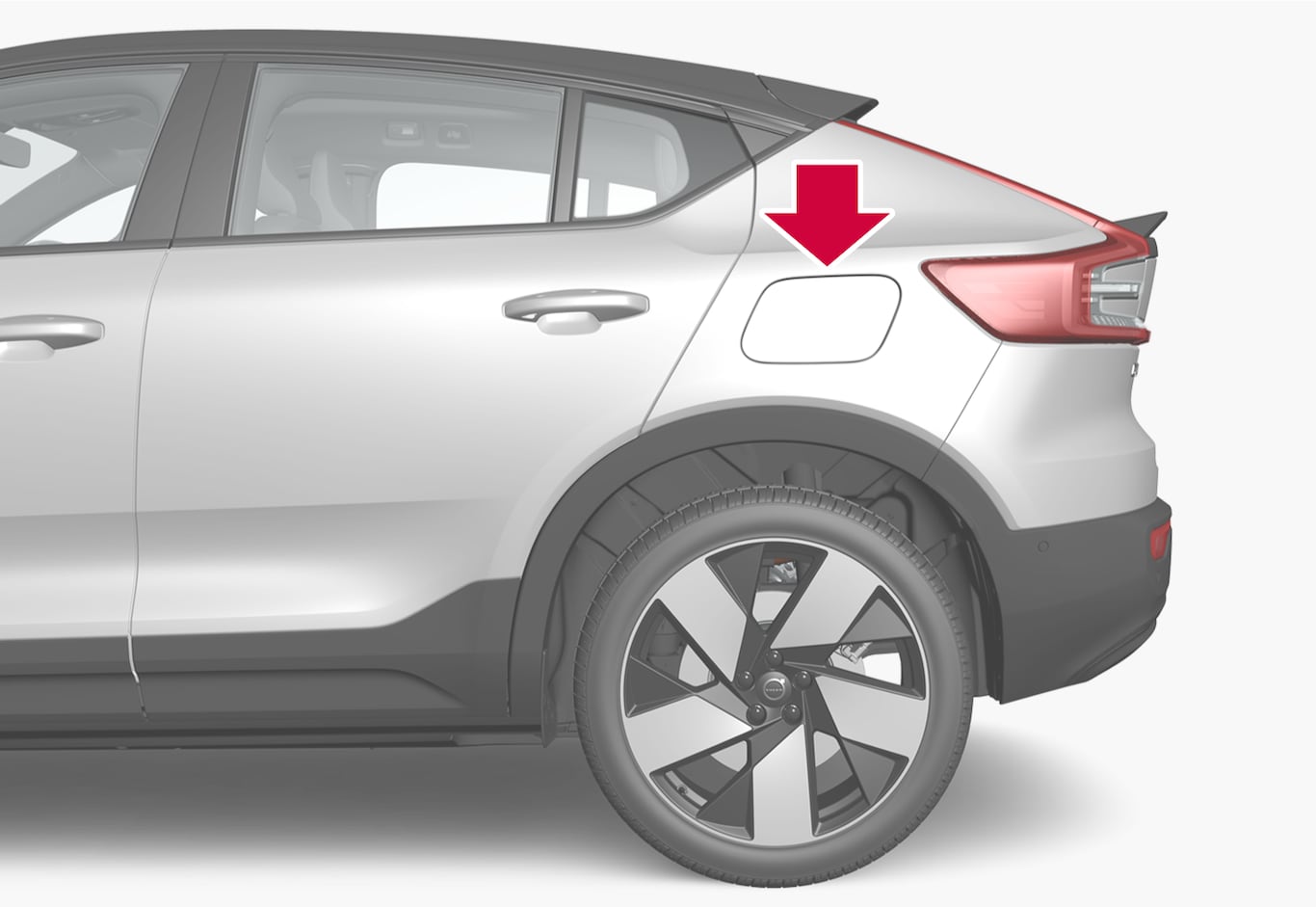
Charging via charging station (mode 3)1
Detach the charging cable from the charging station's storage socket or take out the charging cable.
Plug the charging cable into the charging station. If the charging station has a permanent charging cable, skip to step 3.
Important
Avoid plugging in the charging cable when there is a risk of a thunderstorm or lightning strikes.
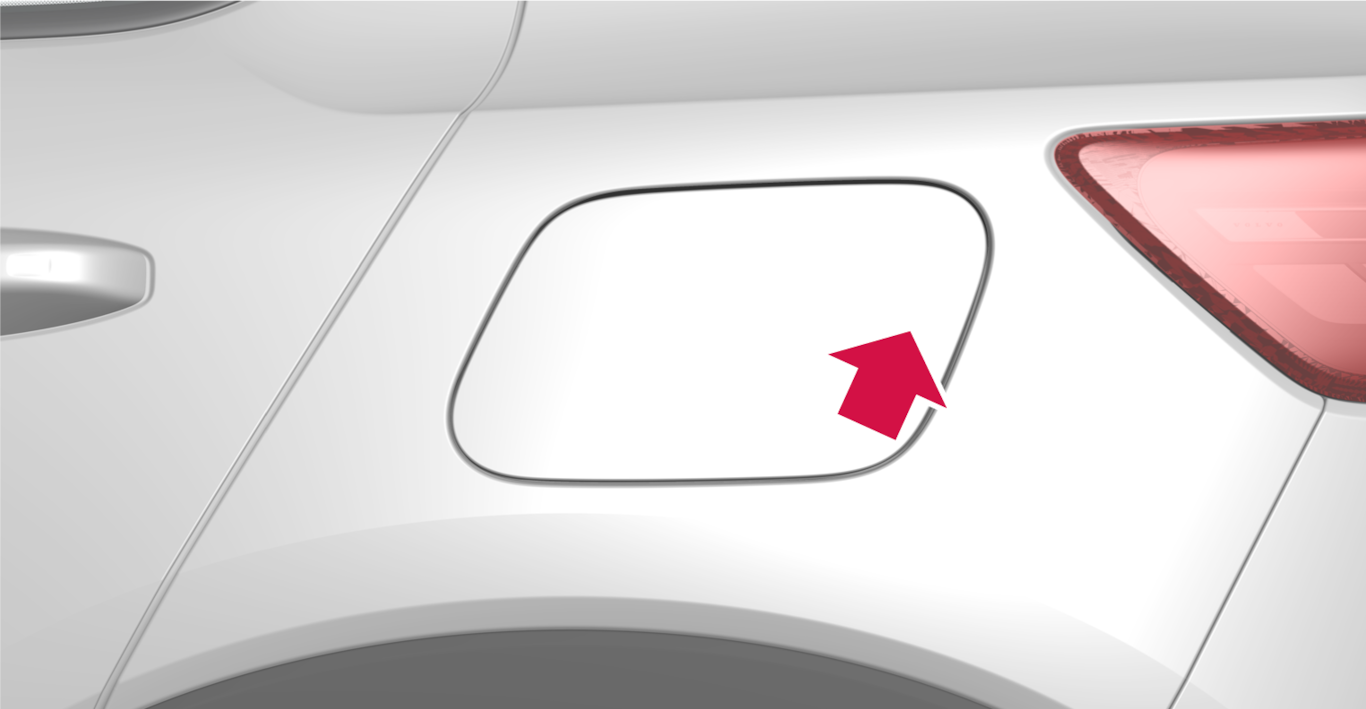
Press in the rear section of the cover to open the charging hatch2.
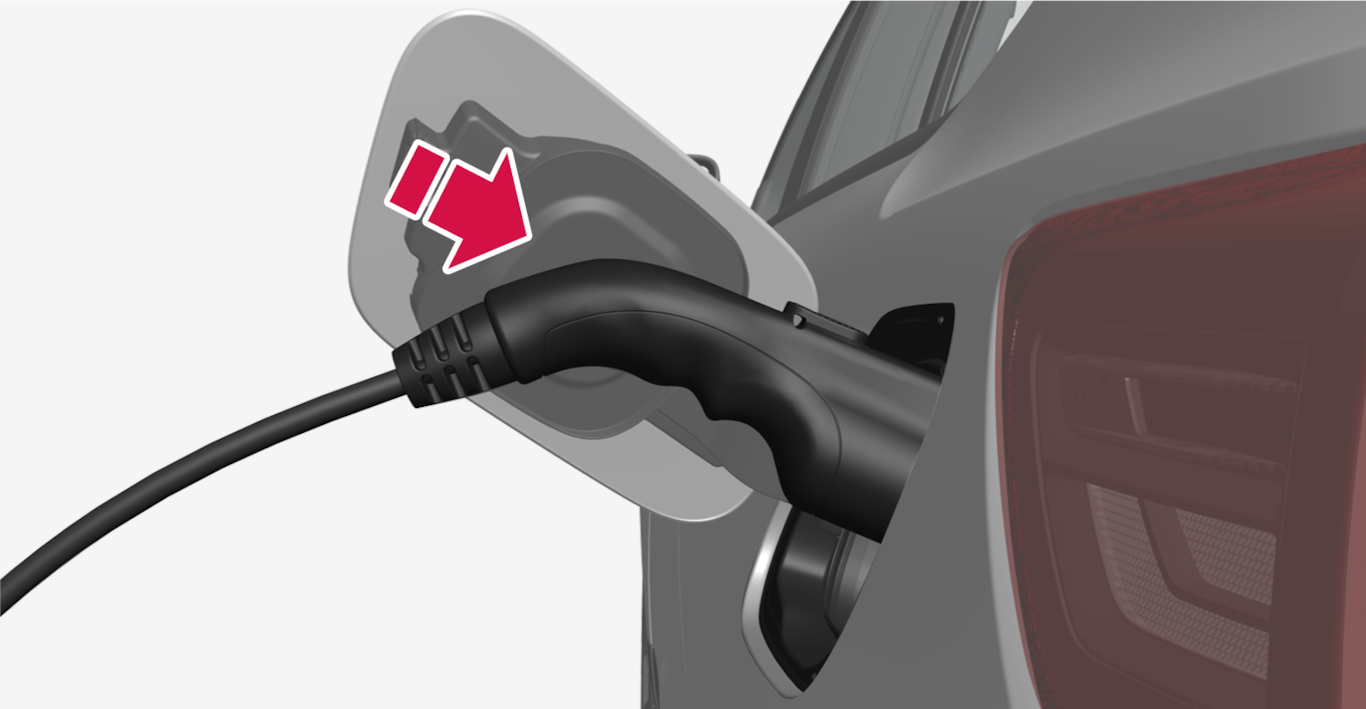
Remove the charging handle's protective cover and press the charging handle the whole way into the charging input socket.
Important
To avoid damage to the paint, e.g. in the event of high winds, position the charging handle's protective cover so that it does not touch the car.
The charging cable's charging handle is fastened/locked in, and charging starts within 5 seconds.
When charging has started, the LED lamp in the charging input socket flashes green.
The driver display and the centre display show the remaining estimated charging time or whether charging is not working as intended.
Condensation from the air conditioning may drip under the car during charging. This takes place due to cooling the high voltage battery.
Important
If the fuse blows when charging, make sure the current shown on the centre display is set to the specified compatibility of the electrical installation. In a three-phase IT network (common in Norway), the current in the car's return conductor can be higher than the phase current. If, for example, 16 A is set in the car, up to 28 A is possible in the return conductor.
Warning
- Children should be supervised when in the vicinity of the charging cable when it is plugged in.
- High voltage is passing through the charging cable. Contact with high voltage can cause death or serious personal injury.
- Do not use the charging cable if it is damaged in any way. A damaged or inoperative charging cable must only be repaired by a workshop - an authorised Volvo workshop is recommended.
- Always position the charging cable so that it will not be driven over, stepped on, tripped over or damaged in some other way, or cause personal injury.
- Do not use one or more adapters between the charging cable and the electrical socket.
- Do not connect one or more adapters of any type between charging cable and car.
Also, refer to the manufacturer's instructions for using the charging cable and its components.
Important
Do not wash the car when the charging cable is connected or when the charging hatch is open.
Fast charging (direct current)
Ensure that the car is parked in a safe place suitable for charging.
Detach the charging cable from the charging station's storage socket.
Open the charging hatch and remove the protective cover for the charging input socket.
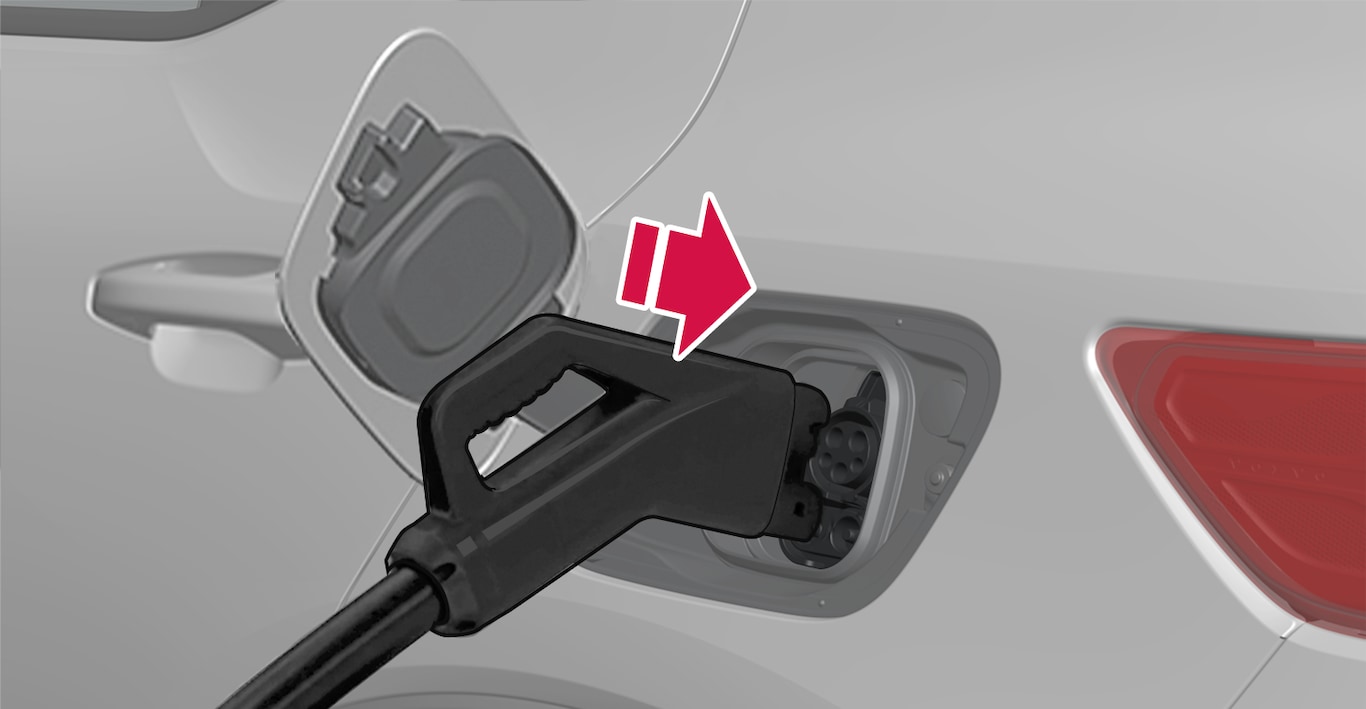
Grasp the charging cable with both hands and press the charging cable all the way into the car's charging input socket. Hold the charging handle upwards for several seconds. The charging cable is automatically locked into the charging input socket after a couple of seconds. Ensure that the charging cable is properly locked so that charging can start.
Follow the instructions in the charging station's interface to authorise the charging. Charging begins when the charging station has executed an isolation test. This can take around one minute.
When charging has started, the LED lamp in the charging input socket flashes with a green glow. The driver display and the centre display show the remaining estimated charging time or whether charging is not working as intended.
Note
Charging stations with support for CCS are normally clearly marked CCS or Combo.
Decal on the inside of the charging flap
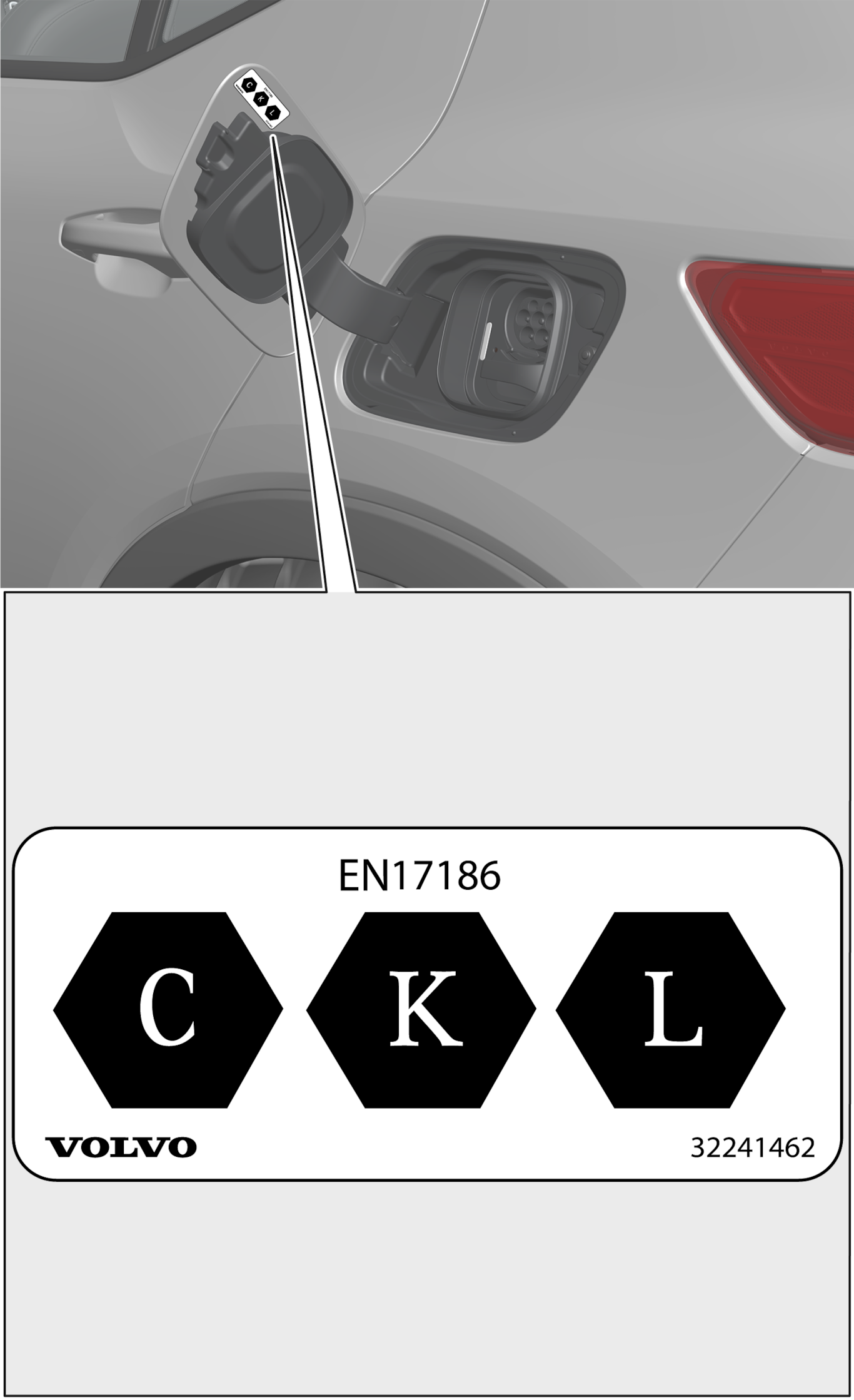
Identifiers that comply with CEN standard EN 17186 can be found on the inside of the charging flap.
- C: Type 2 charging with alternating current (AC)
- K and L: charging with direct (DC), including Combined Charging System (CCS)